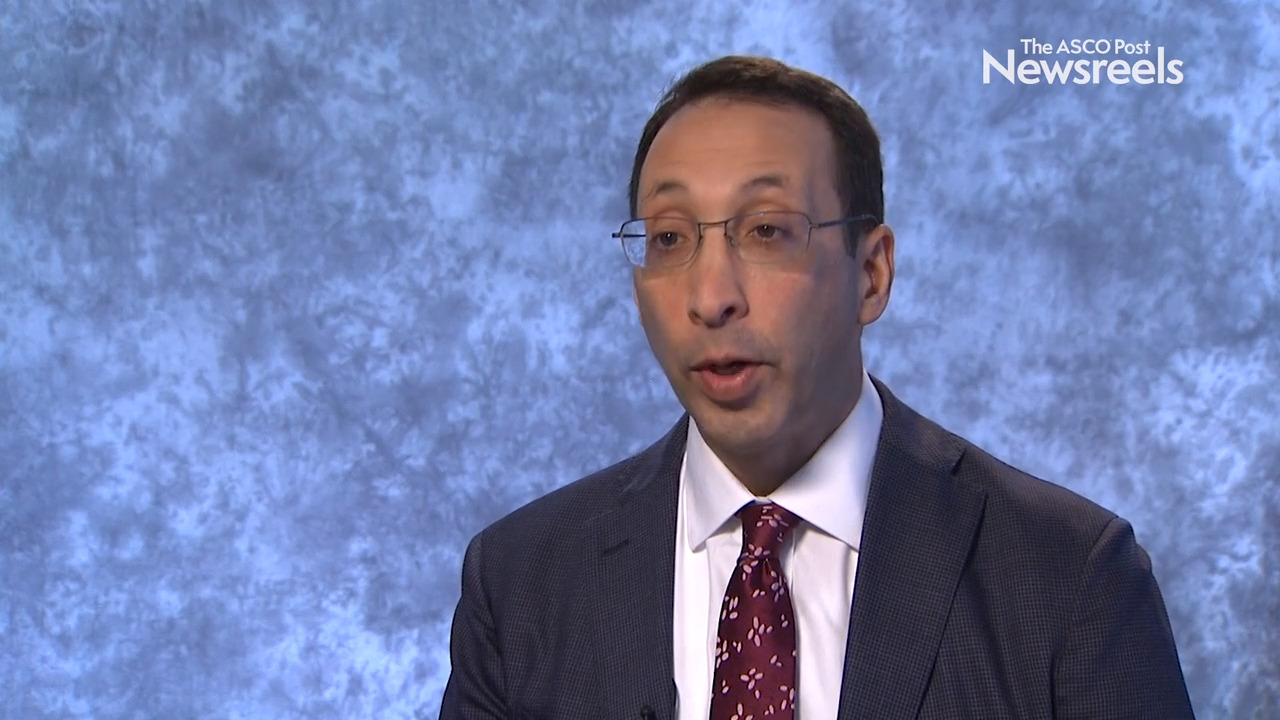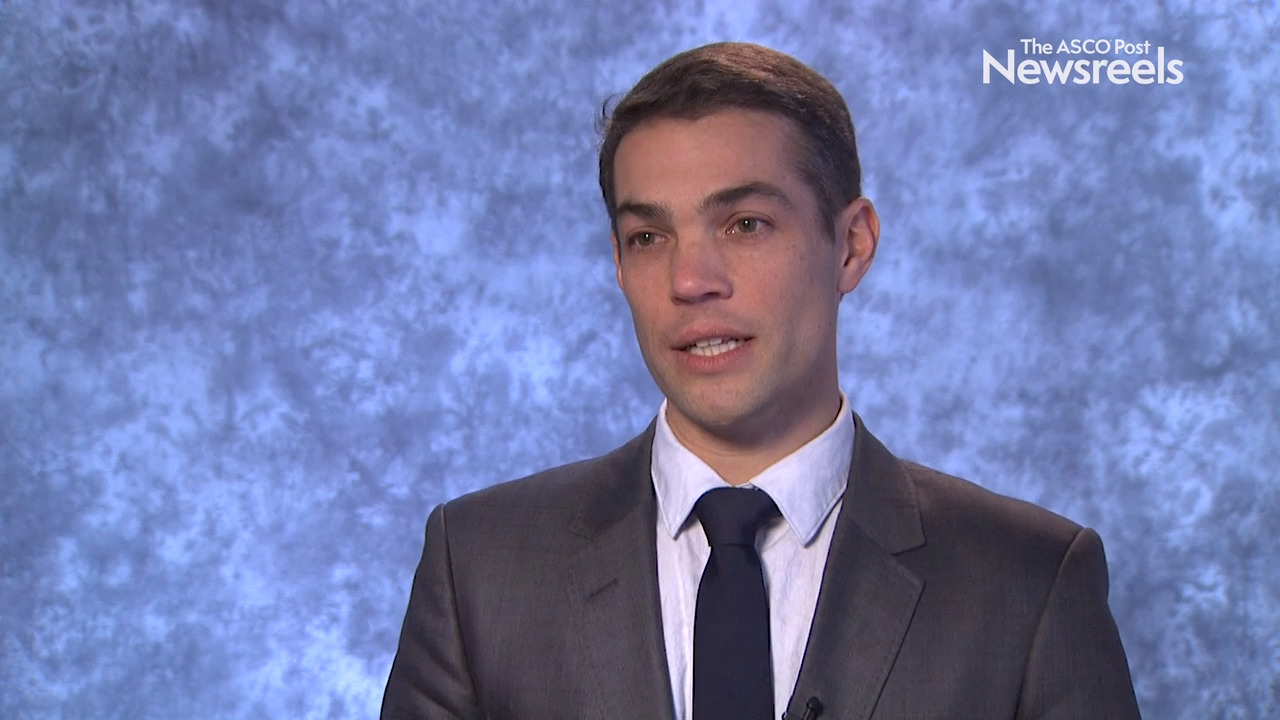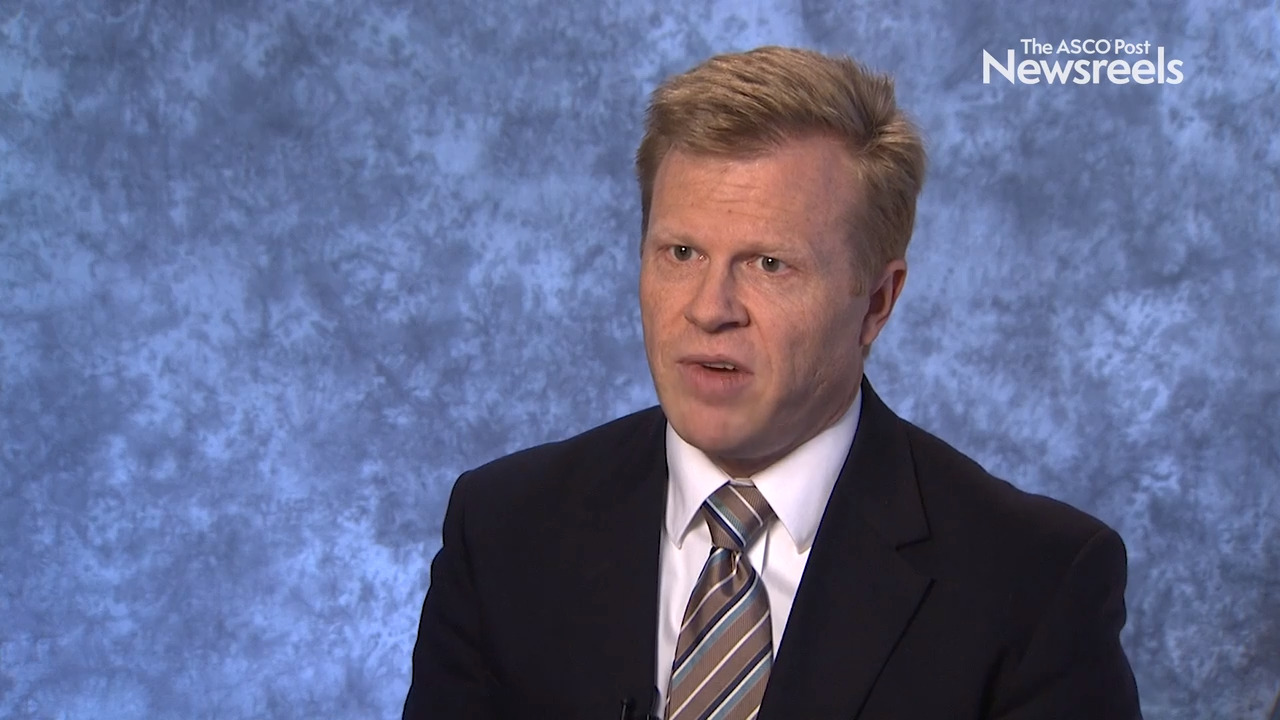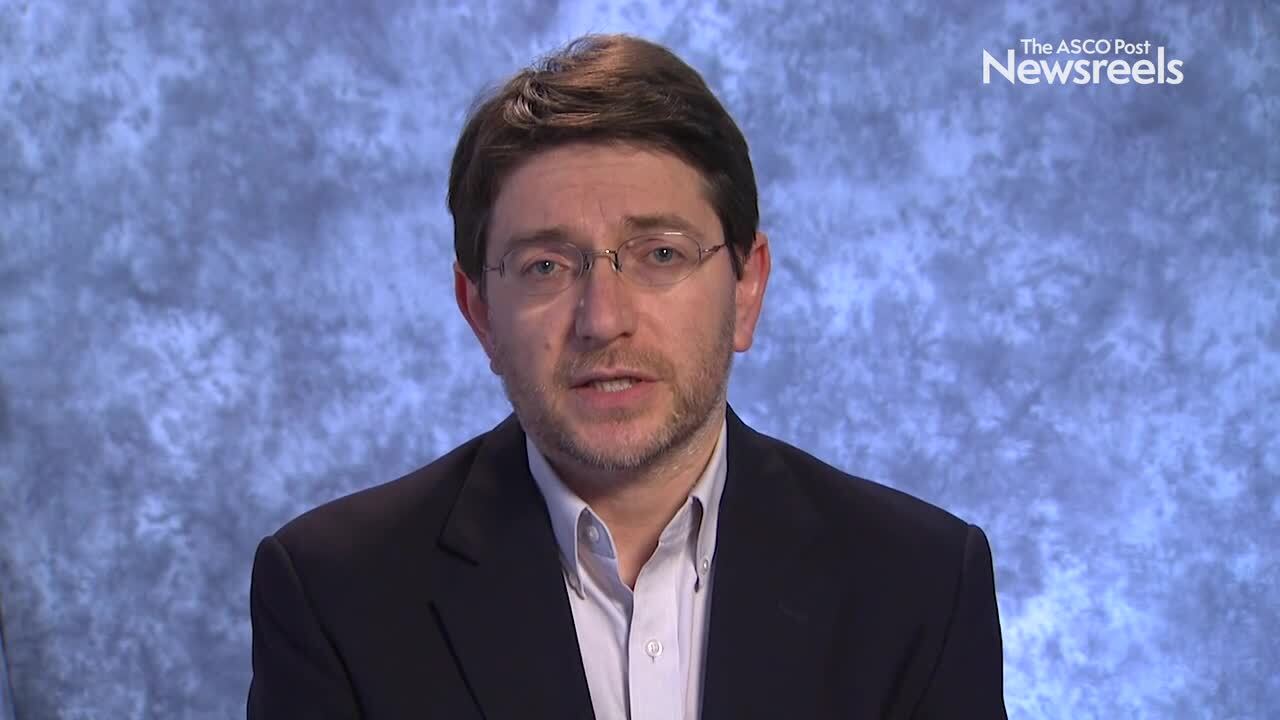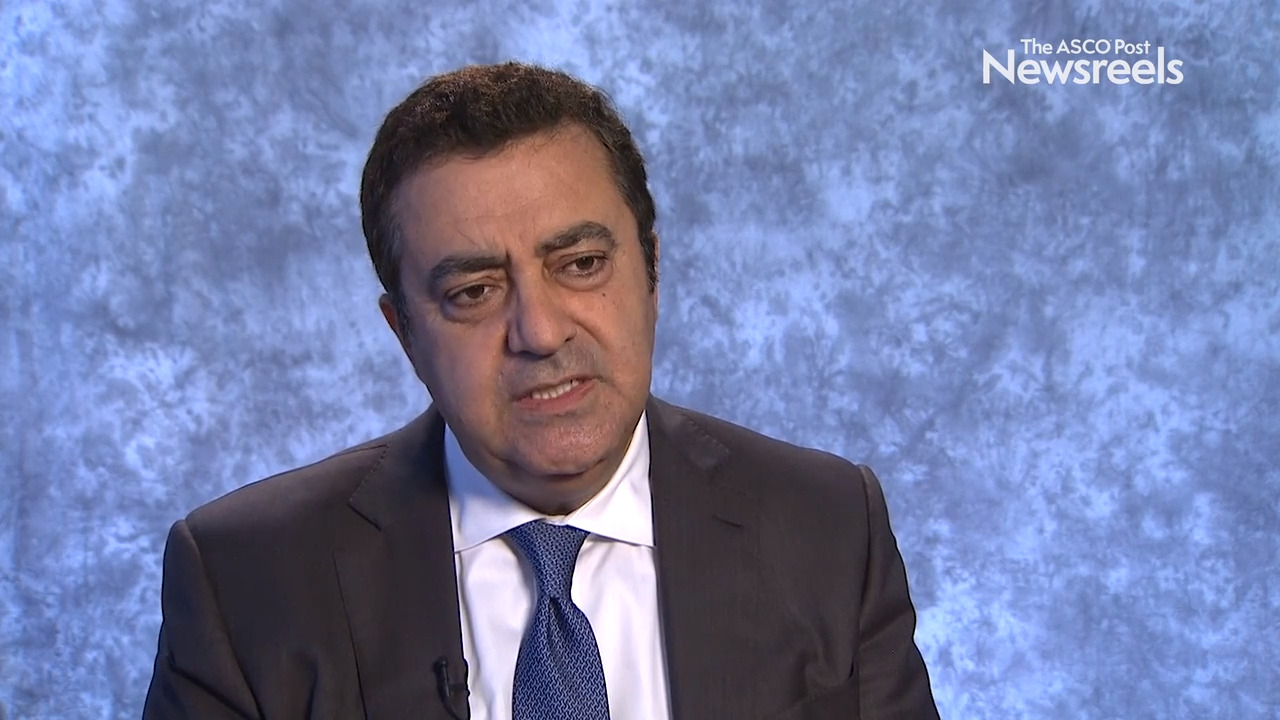Mikkael A. Sekeres, MD, on MDS: Results From the Medalist Trial
2018 ASH Annual Meeting & Exposition
Mikkael A. Sekeres, MD, of the Cleveland Clinic, discusses phase III study findings on luspatercept to treat anemia in patients with very low-, low-, or intermediate-risk myelodysplastic syndromes with ring sideroblasts who require red blood cell transfusions (Abstract 1).
Steven M. Horwitz, MD, of Memorial Sloan Kettering Cancer Center, discusses phase IIa study findings on the novel SYK/JAK inhibitor cerdulatinib for relapsed/refractory peripheral T-cell lymphoma and cutaneous T-cell lymphoma (Abstract 1001).
Saar I. Gill, MD, PhD, of the University of Pennsylvania, discusses findings from a prospective clinical trial on the high response rate in patients with chronic lymphocytic leukemia who received a combination therapy of CAR T cells plus ibrutinib (Abstract 298).
Tait D. Shanafelt, MD, of Stanford University, discusses phase III study findings on ibrutinib-based therapy vs standard fludarabine, cyclophosphamide, and rituximab chemoimmunotherapy in untreated younger patients with chronic lymphocytic leukemia (Abstract LBA4).
Alexander B. Pine, MD, PhD, of Yale School of Medicine, discusses a survey gathering data on health-care providers’ practices and preferences in using direct oral anticoagulant therapy to treat venous thromboembolism.
Readers of The ASCO Post are invited to participate in this research by completing the survey, entitled: “Perspectives and Practices in Utilization of Direct Oral Anticoagulants in Patients With Cancer-Associated Venous Thromboembolism.” The survey takes approximately 3 to 4 minutes to complete and can be taken on a mobile device or a computer. The survey link is https://yalesurvey.ca1.qualtrics.com/jfe/form/SV_3l0HxrreWZhVtBz.
Anas Younes, MD, of Memorial Sloan Kettering Cancer Center, discusses trial findings on ibrutinib plus rituximab, cyclophosphamide, doxorubicin, vincristine, and prednisone in people with previously untreated non–germinal center B-cell–like diffuse large B-cell lymphoma (Abstract 784).
